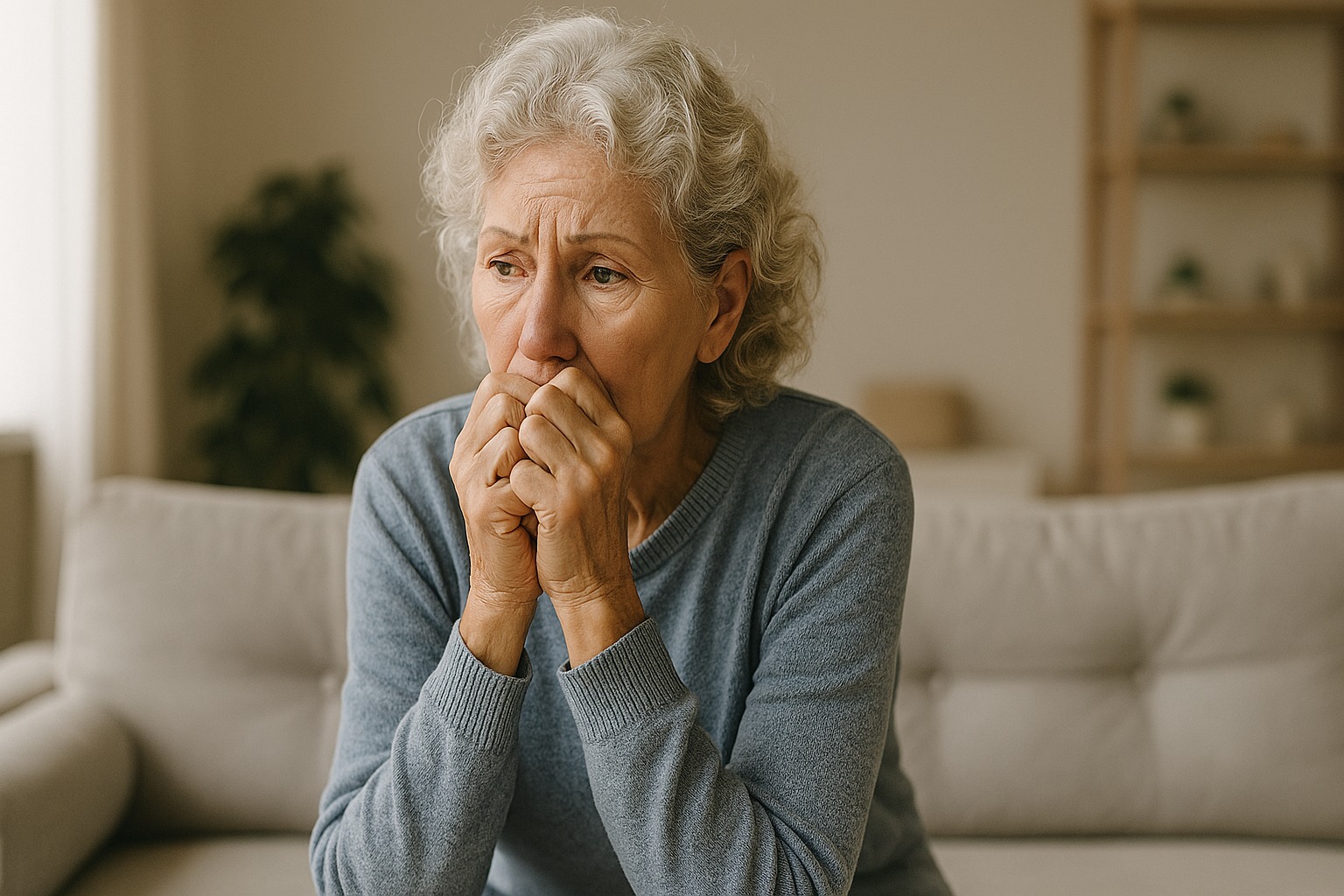
Aging is often seen as a time to relax and enjoy the fruits of a life well-lived. However, for many seniors, this phase brings its own set of challenges, including mental health concerns like anxiety disorders. While anxiety is a natural part of life, when it becomes overwhelming and persistent, it can significantly impact daily functioning and overall well-being.
Let’s delve into what anxiety disorders in seniors look like, why they occur, and how they can be managed effectively.
What Are Anxiety Disorders?
Anxiety disorders are mental health conditions characterized by excessive fear, worry, or unease. These feelings can interfere with everyday activities, relationships, and overall quality of life. Common types of anxiety disorders include:
Generalized Anxiety Disorder (GAD): Chronic worry about everyday matters, often accompanied by restlessness, fatigue, difficulty concentrating, irritability, muscle tension, and sleep disturbances. It can lead to an overwhelming sense of dread or unease, making it challenging to focus on daily tasks and enjoy life fully.
Panic Disorder: Sudden episodes of intense fear or discomfort, often accompanied by physical symptoms such as a racing heart, sweating, trembling, shortness of breath, chest pain, dizziness, or feelings of impending doom. These episodes, known as panic attacks, can occur unexpectedly or be triggered by specific situations, leading to a persistent fear of having another attack and avoiding places or activities that might provoke one.
Social Anxiety Disorder: A mental health condition characterized by an intense fear of social situations, stemming from a deep worry about being judged, embarrassed, or humiliated by others. Individuals with this disorder often avoid social interactions or endure them with significant distress, which can affect their daily life, relationships, and work or academic performance. Physical symptoms such as sweating, trembling, rapid heartbeat, or nausea may accompany the fear. Common triggers include public speaking, meeting new people, or eating in front of others.
Phobias: An intense and irrational fear of specific objects, places, or situations that poses little to no actual danger. This fear often leads to avoidance behavior or extreme distress when faced with the trigger. Phobias can significantly interfere with daily life, relationships, and activities. Common examples include fear of heights (acrophobia), enclosed spaces (claustrophobia), or animals (such as arachnophobia for spiders). Physical symptoms like sweating, rapid heartbeat, or difficulty breathing may occur during exposure to the feared object or situation.
For senior loved ones, anxiety can sometimes manifest differently than in younger adults, making it harder to diagnose. Physical symptoms such as fatigue, muscle tension, or gastrointestinal issues may overshadow the emotional distress.
Signs and Symptoms of Anxiety in Seniors
Recognizing anxiety in seniors is the first step toward addressing it. Some common signs include:
Persistent worry or fear
Restlessness or feeling “on edge”
Avoidance of social activities
Difficulty concentrating
Sleep disturbances
Physical symptoms like headaches, rapid heartbeat, or shortness of breath
In many cases, seniors may not openly express their feelings of anxiety, either due to stigma or because they mistake their symptoms for normal aging. This makes it crucial for family members and caregivers to remain attentive and proactive.
Why Do Seniors Experience Anxiety?
The golden years come with unique stressors that can trigger or exacerbate anxiety disorders. Some common factors include:
Health Issues: Chronic illnesses, declining physical abilities, or pain can contribute to anxiety.
Loss of Loved Ones: The death of a spouse, friend, or family member can lead to feelings of loneliness and fear about the future.
Financial Concerns: Worries about retirement savings, medical expenses, or being a burden can weigh heavily on seniors.
Cognitive Decline: Memory lapses or early signs of dementia can increase feelings of insecurity and fear.
Changes in Environment: Moving to a new home or assisted living facility or losing independence can disrupt a senior’s sense of stability.
How Anxiety Affects Seniors’ Lives
Unchecked anxiety can have a profound impact on seniors, affecting their physical health, relationships, and overall quality of life. It can:
Exacerbate Chronic Conditions: Anxiety can worsen conditions like heart disease, hypertension, or diabetes.
Lead to Isolation: Fear or worry can cause seniors to withdraw from social interactions, increasing the risk of loneliness and depression.
Impair Daily Functioning: Simple tasks may feel overwhelming, leading to a decline in independence.
Strategies to Manage Anxiety in Seniors
The good news is that anxiety disorders are treatable. Here are some effective strategies to help senior loved ones manage their symptoms:
Professional Help: Seeking assistance from a mental health professional is crucial for an accurate diagnosis and a tailored treatment plan.
When to Seek Help
While occasional worry is normal, it’s essential to seek professional help if anxiety:
Interferes with daily activities or relationships
Causes severe physical symptoms
Leads to substance abuse or self-harm
Early intervention can prevent the condition from worsening and improve the senior’s quality of life. Therapy, especially Cognitive Behavioral Therapy (CBT), can be highly effective in helping seniors recognize and transform negative thought patterns. Elder care services offer psychotherapy services to support mental well-being and improve the overall quality of life.
Medications: Anti-anxiety medications or antidepressants may be prescribed, but it’s essential to monitor for side effects and interactions with other medications.
Physical Activity: Regular exercise, such as walking, swimming, or yoga, can help reduce stress and boost mood by releasing endorphins.
Relaxation Techniques: Practices like deep breathing, meditation, or progressive muscle relaxation can alleviate anxiety symptoms in senior loved ones.
Healthy Lifestyle: Encourage a balanced diet, adequate sleep, and limited caffeine or alcohol intake.
Social Engagement: Participating in community activities, joining clubs, or volunteering can help seniors build meaningful connections and reduce feelings of isolation.
Mindfulness and Gratitude: Encourage mindfulness practices or maintaining a gratitude journal to focus on positive aspects of life.
Support Systems: Family, friends, and caregivers play a vital role in providing emotional support. Regular check-ins and open communication can make a significant difference.
Anxiety disorders in senior loved ones are more common than many realize, but they’re not an inevitable part of aging. With proper care, support, and treatment, seniors can lead fulfilling, anxiety-free lives.